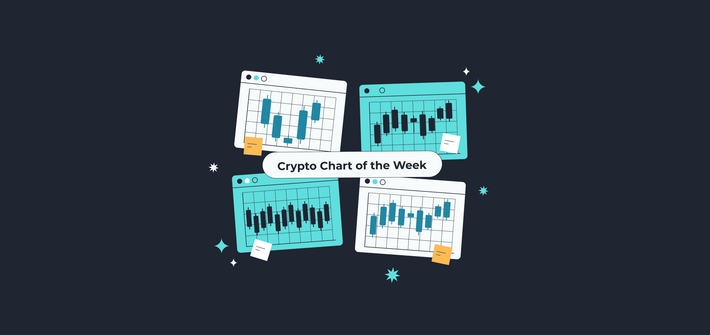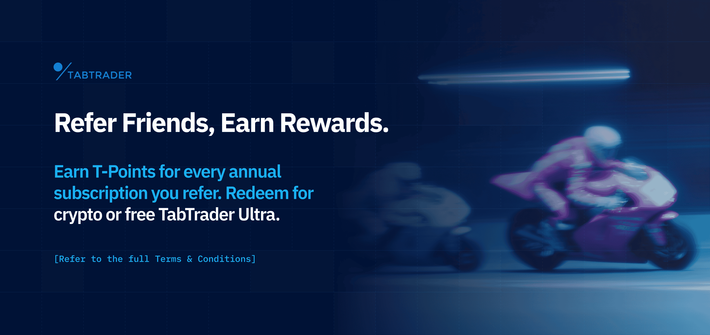Deep Dive into Crypto Trading Psychology: Emotions and Cognitive Biases
*Updated December 3, 2025.
The overwhelming majority of retail traders lose money. According to a 2025 SEBI report, about 91% of retail traders end up in the red. Not because they lack knowledge or strategy; it is an issue of psychology and behavioral bias. Moments like capitulating during a minor dip or aggressively chasing a multi-bagger pump, the classic acts of fear and greed, are not simple mistakes. They are evidence of predictable, systemic flaws.
Key takeaways
- The market structure is designed to exploit human emotional weaknesses, making discipline the only consistent source of edge.
- Blame your wiring, not your willpower. Your limbic system (emotion) and prefrontal cortex (logic) are in constant war, and emotion usually wins.
- Cognitive biases are unavoidable mental shortcuts. Success depends on implementing procedural "patches" to work around them.
- A comprehensive, non-negotiable trading plan serves as an emotional firewall against reactive decisions.
What Is Trading Psychology?
Trading psychology is a study of psychological factors that influence traders' behavior and decision-making in financial markets. It focuses on understanding how emotions and cognitive biases impact trading performance and how to mitigate their negative effects.
The Role of Emotions in Trading Decision-Making
Emotions are complex psycho-physiological reactions that help humans evaluate and adapt to their environment. They are designed to influence behavior and decision-making in ways that promote survival and enhance overall well-being.
However, while emotions can often improve certain cognitive functions, they can also bias perceptions and distort judgments when they override rational analysis. In trading, emotions such as fear and greed can sometimes influence traders to make impulsive and irrational decisions:
Fear
When faced with the possibility of losses, traders, driven by fear, may avoid taking necessary risks, leading to missed opportunities or premature exits from potentially profitable positions.For instance, in a market downturn, a trader might hastily sell a position, overlooking the asset's long-term potential, only to witness it recover shortly afterward.
Greed
On Wall Street, they say “greed is good,” but for a retail trader it’s a trap in disguise, an adrenaline rush that makes risk feel like opportunity. Greed runs on dopamine, your brain’s little “win” chemical. Each successful trade gives you a hit, and before long, you’re not trading for money, you’re trading for that buzz. Suddenly, “just one more trade” at 2 a.m. feels completely logical.
It’s a dangerous loop. Greed pushes you to overleverage, chase pumps, or ignore every warning light blinking on your charts. You hold winning trades too long, dreaming of that one perfect moonshot. You forget that the same chemical high that makes you feel invincible is the one clouding your judgment.
The irony? Both fear and greed come from the same place. That is, your brain trying to protect you or reward you. But in markets, both instincts need a leash. The traders who last are the ones who’ve learned to feel the emotion… and still do the opposite of what it demands.
Common Cognitive Biases in Crypto Trading
In addition to emotional influences, cognitive biases may also undermine the rationality of traders' decisions in financial markets. Common cognitive biases in crypto trading include:
1. Confirmation Bias
Confirmation bias is the tendency of an individual to seek out information that confirms their pre-existing beliefs. Traders may downplay or ignore facts that go against their market view and place disproportionately higher importance on market news or analysis they agree with. Such behavior can be potentially harmful because it impairs traders’ ability to maintain a balanced perspective.
2. Anchoring Bias
Anchoring bias is when traders become irrationally attached to specific price levels or past market trends of an asset in their decision-making process. A common example is holding onto a losing position, in the expectation that its price will return to the level at which it was originally purchased.
3. Availability Heuristic
This bias occurs when traders assign special importance to information that is more recent or readily available to them. This might mean overreacting to recent news headlines or trends while neglecting a broader market context or historical data.
4. Loss Aversion
Loss aversion is a trader’s tendency to prioritize avoiding losses over earning gains. Individuals affected by this bias feel the pain of loss more strongly than the pleasure of a gain of the same magnitude. This often leads traders to hesitate in taking even justifiable risks and miss out on potential profits.
5. Hindsight bias
After a move plays out, it always looks “obvious.” “Of course it dumped, the RSI was screaming.” The problem? You start believing you knew it all along, which kills your ability to learn.
6. Recency bias
The last few candles look bullish, so you assume the trend will continue forever. Or maybe you just got burned and now you see every move as a trap. Either way, you’re letting short-term noise dictate long-term judgment. Markets love to trick traders who think the present moment tells the whole story.
7. Overconfidence bias
A few good calls, and suddenly you’re a market wizard. You crank up the leverage, double your position size, and stop checking risk limits because “you’ve got this.” Then one nasty reversal wipes out weeks of progress.
Overconfidence tricks you into thinking you see patterns others miss. In reality, you’re just giving luck too much credit.
Techniques for Cultivating Rational Decision-Making
To resist the undesirable effect of emotions and cognitive biases in trading decision-making traders can employ the following strategies:
Emotional Regulation: The ability to identify emotions as they arise in trading scenarios empowers traders to neutralize the negative consequences they may bring. Practicing mindfulness and self-awareness on a regular basis can help maintain emotional balance even in high-pressure situations.
Awareness of Biases: Traders can overcome cognitive biases by continually educating themselves about them and actively seeking contrarian perspectives.
Discipline: Having a predetermined trading plan can significantly improve a trader’s ability to make consistent and rational decisions. With clear profit targets, defined risk tolerance levels, and a solid risk management strategy in place, traders are less likely to act impulsively.
Objective Analysis: Thorough technical analysis and comprehensive research provide a strong factual foundation for decision-making.
FAQs
1. What’s the hardest part of trading psychology?
Cutting losses. It hurts twice as much as winning feels good, and your brain resists it every time.
2. How long does it take to master it?
Years. But you get better fast if you journal consistently. The goal isn’t to “cure” emotion. It’s to trade through it.
3. What’s revenge trading?
It’s when you lose money, get angry, and jump into another trade to “win it back.” It’s emotional self-sabotage. The cure? Step away. Always.
Final thoughts
In the end, your biggest opponent isn’t the market; it’s you.
Every chart, every pump, every red candle is just a mirror for your psychology. Fear, greed, impatience. They never go away. But once you can see them, they lose their power.
You don’t need to be emotionless. You just need to be aware enough to stop letting emotions make your trades. That’s how you go from reacting to acting, and from gambling to winning.
Important Note: TabTrader does not provide investment, tax, or legal advice, and you are solely responsible for determining whether any financial transaction strategy or related transaction is appropriate for you based on your personal investment objectives, economic circumstances, and risk tolerance. Tab Trader may provide information that includes but is not limited to blog posts, articles, podcasts, tutorials, and videos. The information contained therein does not constitute investment advice, financial advice, trading advice, or any other sort of advice, and you should not treat any of the content as such. TabTrader does not recommend that any digital asset should be bought, earned, sold, lent out, or held by you, and will not be held responsible for the decisions you make.




